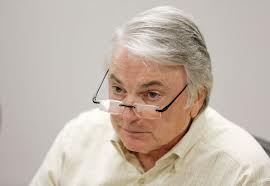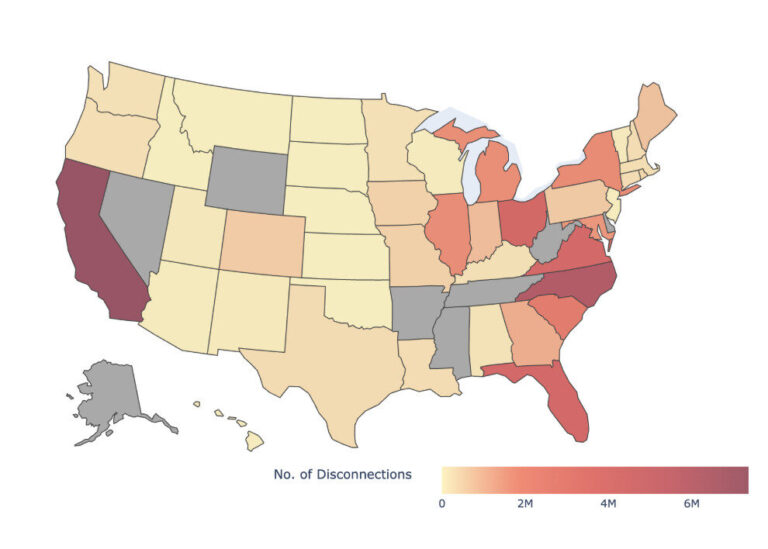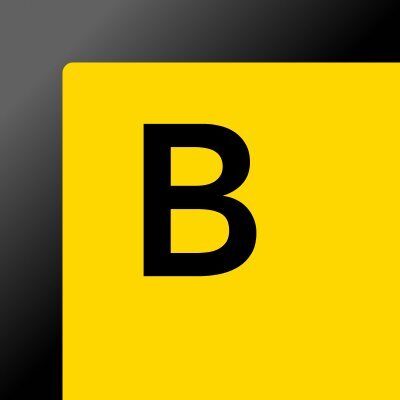Richard Fink: The Koch Brothers’ Big Tobacco Man Behind the Kochtopus Curtain

Richard Fink has long been one of the Koch Brothers’ inner circle, playing the role of both political strategist and close confidante.
Some say the Koch Empire wouldn’t have been nearly as successful without Fink. Without him and his ideas, what is now pejoratively known as the “Kochtopus” probably would not have branched so far into research or political advocacy.
But relatively few people have heard of Richard Fink. And even fewer know of his connections to Big Tobacco – connections which may have influenced the creation and actions of Koch-funded front groups for decades to come.
With the Kochs’ support, Fink established the Mercatus Center in 1980, and then co-founded Citizens for a Sound Economy (CSE) in 1984, where he served as President and CEO. Later, Fink helped found Americans for Prosperityto succeed CSE in 2004.
Fink sits on the board of the Institute for Humane Studies and is the former President of two Koch Family Foundations. Further, he has served as the Executive Vice-President of Koch Industries since 1989.
The Koch Brothers are best known as a key funder behind the climate denial machine and for their political attacks on President Barack Obama, as Jane Mayer exposed in her must-read New Yorker article.
The Kochs have donated over $25 million to front groups that attack climate science, create doubt and confusion among the public, and otherwise delay accountability for polluters.
Americans for Prosperity has campaigned against efforts to cut greenhouse gas emissions, and amplified the “Climategate” attack on scientists, calling global warming the “biggest hoax the world has ever seen.”
But the Koch front groups’ involvement in the tobacco industry has gone largely unreported.
In 1999, the major tobacco companies were accused of a mass conspiracy to deceive the public about the dangers of smoking. The United States Department of Justice filed a racketeering lawsuit against major cigarette manufacturers, and sought $280 billion in penalties.
To combat this, Big Tobacco called on its allies for support – including the Mercatus Center and Citizens for a Sound Economy – both created by Richard Fink.
THE MOBILIZATION UNIVERSE
In a document called “Mobilization Universe,” as seen on the Tobacco Archives, Philip Morris laid out a plan to call on its allies. The goal: avert White House filing of the federal suit.
Its plan was to leverage third-party relationships to “oppose DOJ appropriations request for federal suit task force, oppose federal legislation enabling cause of action against the industry, and persuade the Administration and Senate and House Democrats of the political liability in a federal suit.”
Philip Morris laid out its key targets and key message points, examples of which include “Assumption of risk,” “Money grab,” and “Bad for Gore and Senate and House Democrats in 2000.” The document calls for third-party surrogates to write op-eds, LTEs and editorials, give speeches or testimonies, create policy reports, join coalitions, and provide access to policymakers, to name several.
CSE and the Mercatus Center were documented as allies several years before that, as well. In 1991, both CSE and Mercatus were part of a portfolio of organizations Philip Morris had cultivated to support its interests during a federal suit. Many other Koch-funded organizations were also included in this list, including the Cato Institute and theHeritage Foundation.
A HISTORY OF ALLIANCE
For several years, Fink acted on behalf of Big Tobacco using tactics laid out in their mobilization strategy – dating back from 1985, when he wrote federal representatives urging them to eliminate the US Tobacco Program. In a hand-signed letter, he wrote:
“Dear Representative: On behalf of the 220,000 members of Citizens for a Sound Economy, I urge you to consider the heavy costs of the U.S. tobacco program, and the enormous benefits to consumers and taxpayers which would result from the elimination of that program.”
The elimination of the tobacco tax bill would have lined the pockets of Big Tobacco CEOs, with less taxes and easier access for farmers to grow tobacco. Fink aligned not only himself but the entire membership of CSE with the interests of Big Tobacco.
In 1988, Fink wrote to the Surgeon General to express concern about the Interagency Committee on Smoking and Health’s inquiries into the subject of tobacco and U.S. trade policy. He warned that it would be unwise to suggest any foreign trade barriers, ending, “we hope that you will keep these thoughts in mind as your department discusses U.S. trade policy toward tobacco.” This letter, in the Tobacco Archives, included an addendum from Samuel Chilcote, President of The Tobacco Institute, urging others to follow Fink’s lead and support.
For Fink’s efforts, Chilcote thanked Fink in a hand-signed letter on behalf of the tobacco industry, writing, “When an advisory body such as the Interagency Committee on Smoking and Health ventures into the field of U.S. trade policy, it is vitally important that the public record be balanced by the sound economic views and sensible business judgments that you provided.”
A LEGACY OF LOBBYING
In 1988, Fink testified on behalf of CSE to the National Economic Commission, urging them to avoid tax increases – increases that would have negatively impacted Big Tobacco’s profits.
Under Fink’s guidance, CSE participated in coalitions and partnered with other tobacco front groups, honing the dirty public relations tactics employed today by the Kochtopus Empire to delay action on combatting climate change.
CSE joined the “Coalition for Fiscal Restraint” (COFIRE) in 1988, along with Koch Industries and Philip Morris. This is the only coalition in which Koch Industries represented itself as a corporation, rather than through its myriad front groups.
CSE also took part in “Get Government Off Our Back,” the front group created in 1994 by RJ Reynolds Tobacco Company to fight federal regulation of the tobacco industry. Its involvement in this group was kept in strict confidence until eventually made public via the Tobacco Archives. During this time, CSE was funded to the tune of at least $400,000 by the tobacco industry for its efforts to limit government regulation.
In 1998, CSE lobbied against California’s Proposition 10, an amendment to raise tobacco taxes in the Sunshine State. Members of CSE wrote letters to legislators and put forth a pledge to vote no. Ultimately, the effort “went up in smoke” and Prop 10 passed.
In 2004, Citizens for a Sound Economy split into two groups, Americans for Prosperity (AFP) and Freedomworks.
Richard Fink continued to lead Americans for Prosperity as President, and the tobacco lobbying efforts continue under the smoke of a new banner.
The most recent AFP pro-tobacco effort occurred this past summer, when it campaigned to oppose CA’s Proposition 29. If Prop 29 had passed, it would have increased tobacco taxes and directed the money raised from taxes towards cancer research – insidious given the Koch Brothers’ support for cancer research at places like MIT.
AFP, along with the tobacco industry, spent around $40 millionto defeat Prop 29, mostly on anti-Prop 29 television ads. During that campaign, AFP was also part of a broader coalition of tobacco and anti-tax groups. According to maplight.com, Philip Morris and RJ Reynolds bankrolled almost the entire campaign.
The arguments made against Prop 29 were very similar to those made by Citizens for a Sound Economy in 1998 when it unsuccessfully campaigned against CA Prop 10.
This was not AFP’s first attempt to shill for Big Tobacco.
In 2006 AFP campaigned to oppose tobacco tax increases in several different states – South Dakota, Texas, Kansas, and Indiana. For their work in South Dakota, AFP received money from US Smokeless Tobacco, Retail Tobacco Dealers of America, and Tobacco Warehouse of Rapid City. It also opposed taxes in Texas, Kansas, and Indiana. The following year, in 2007, AFP campaigned to oppose Texas’ smoking ban in indoor workplaces.
Finally, in 2009, AFP and Philip Morris were both asked to react to Virginia’s smoking ban, in an email from Karen Corriere of Altria Group, Inc. (the parent company of Philip Morris). Unsurprisingly, both voiced their opposition quickly. Americans for Prosperity reacted in full, hiring a company to make tens of thousands of calls to the offices of Virginia legislators, pressuring them to vote against the ban.
FISCAL TIES TO BIG TOBACCO
Throughout the years, the alliances were tied together in one of the most politically influential ways – money. The following is just a sample Big Tobacco’s money trail:
- In 1987, Roger Ream – Vice President of CSE – wrote to the Tobacco Institute asking for funding. Given their alliance, it is likely they achieved their goal.
- For its participation in the “Get Government Off Our Backs” (GGOOB) campaign, CSE received $400,000 in 1994 from RJ Reynolds and other tobacco corporations.
- In 1995, $250,000 was shelled out to CSE by Philip Morris.
- In 1996, CSE requested a funding increase of $500,000 from Philip Morris. Due to the handwritten “OK $500,000” at the top of the letter, this was almost definitely approved.
- In 1999, Beth Stevens of CSE wrote to Kirk Blalock of Philip Morris requesting $100,000 in funds to support their efforts “to fight increased government spending, taxes, and regulation.”
- In the late 90’s and early 2000’s, the Mercatus Center received public policy grants from Phillip Morris: $10,000 in 1999, and $20,000 in 2000. CSE received a total of $520,000 in 1999.
- In 2000, in a memo to Philip Morris, CSE requested two million dollars to lead the opposition against tax increases and a Medicare suit to fund “big government” initiatives. The plan: “CSE will develop and run print, radio, and television advertising inside the Beltway and in targeted states. They will generate letters and phone calls to Congress from constituents. CSE will also educate Members of Congress and their staffs by preparing and distributing policy papers, conducting congressional education events, and meeting directly with offices.”
HOW DOES FINK TIE INTO ALL THIS?
Richard Fink first formed his alliance with Big Tobacco in 1985 when he urged legislators to eliminate the Tobacco program. But his value to the tobacco industry only increased with time, much like Dick Armey’s did at Freedomworks.
As Fink gained more influence and power, his relationship with the tobacco industry tightened. When asking the Tobacco Institute for funding, Roger Ream of CSE wrote: “Recently, our president, Richard H. Fink, was appointed to the Consumer Advisory Council of the Federal Reserve and to the Department of Transportation’s Amtrak Privatization Commission. This further enhances CSE’s credibility and effectiveness on these issues.”
From the beginning, Fink’s position in the government was used as a selling point to earn funding support from Big Tobacco, exemplifying CSE’s ability to reduce taxes and fight government regulation.
Richard Fink came to the Koch brothers in 1977 to urge them to turn their libertarian ideals and love of “free markets” into political advocacy. In 2009, he advised them to do everything in their power to change the course of the 2012 election.
The Koch Brothers and their allies have funded attacks on climate science, attacked clean energy and stifled the green debate via an army of front groups. Lo and behold, they also worked with Big Tobacco to stop common-sense regulations and public health measures on smoking. In fact, fighting the tobacco file helped them to hone the playbook they would continue to use to fight against accountability for polluting the atmosphere, harming their workers and fenceline communities, and subverting participatory democracy.
Just as the severe health risks of tobacco are no longer up for debate, neither should be the reality of climate change, though the “Merchants of Doubt” shilling for a killing have – in a self-serving manner – maintained a façade of “controversy” over the issue for decades.



